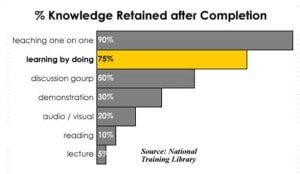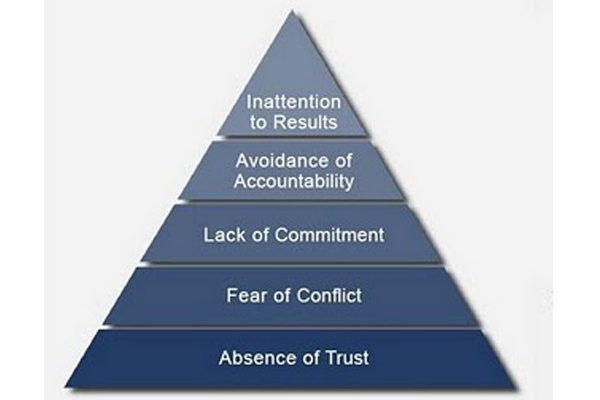When was the last time you played a game? Chances are it was a long time ago, as new statistics show that half of adults don’t find the time to play games simply for fun. I know what you are thinking — play is at the very bottom of your ever-expanding to do list. So why play games during teambuilding? Will these games ultimately generate any benefit for the company?

Often, mentoring and support is essential for a person to realise his potential. Each individual’s ability to learn and change, and to subsequently put more energy into their work, very much stems from how they feel about themselves. An environment where people feel valued and capable is an environment that fosters growth – and is poised for success.
In his book ‘Understanding How People Learn’, author David G Reay explains that learning is in fact a natural phenomenon. Learning through theory is an acquired skill but learning through doing is a natural skill. Take the example of a child trying to force objects into a box with cut-outs of different shapes in the quest to understand spatial relationships. The child makes attempts to match shapes until he understands how it works and successfully completes his ‘game’. It is only when you can do something can you actually claim to understand how it is done.
As articulated by a wise man of the old, “What I hear, I forget; what I see, I remember; but what I do I understand.”
Another research by the National Training Laboratory (USA) has also proven that learning by doing (experiential learning) proves to be most effective, next to personal coaching.

But hold on, if learning is a natural process then, how is that some people don’t learn? There are several barriers to learning, being:
- lack of motivation
- unsuitable work environment
- past experience
- self image
- inadequate study skills
- poor memory
Any combination of the above factors will hinder the learning process and cause resistance to learning. One ingenious way to overcome these barriers is to introduce and encourage learning through play – the playing of games
- In playing games, players look more closely at all aspects of the situation to figure out how to win – to win/overcome is a strong motivating factor in itself. Moreover, when playing games, people are in a relaxed mode and are therefore less self-conscious and less conscious of past experiences. Defenses are also down in an informal setting, assuring low, or little resistance to the intended learning values.
- Another good news is that playing games does not require comprehensive study skills or extensive use of memory. Thus, anyone in an organisation can participate, regardless of educational qualifications, and everyone can benefit from the intended learning points of the games.
- Yet another gratification from playing games is the bonds that will be established within teams. When team members strive together to achieve something, the spirit of camaraderie is inculcated, and it lingers even after the event. Through having fun together, team members also gain more in-depth understanding of each other in a non-threatening environment. This would eventually help in managing differences in personality styles, and adds to the greater cohesiveness within an organization.
In a nutshell, learning through games would prove to be more productive, effective, memorable and thus, more worthwhile. As Plato said ” You can discover more about a person in an hour of play than in a year of conversation”
You may have heard the saying “The family that plays together stays together.” Well, there is everything to be said for finding a place for play in the workplace (especially if it increases employee engagement and innovation), but can managers accept that?
What do you think?










